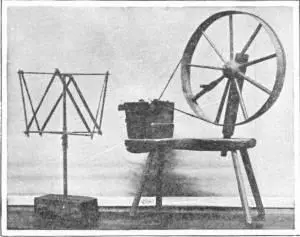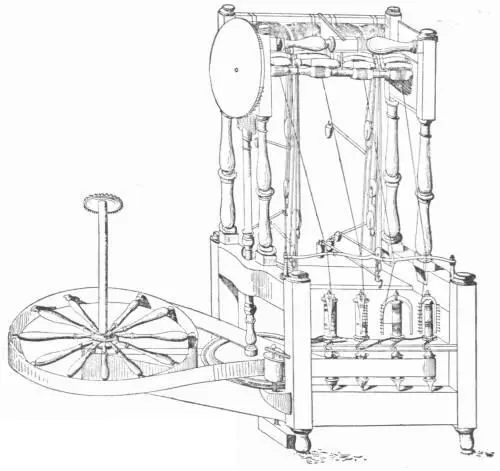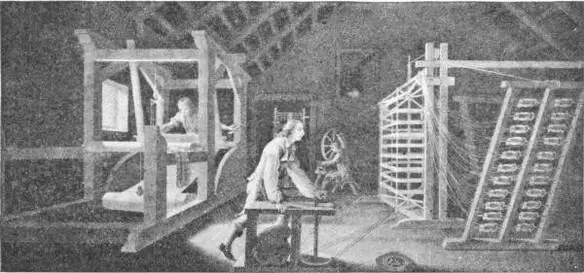Herbert Wells - A Short History of the World
Здесь есть возможность читать онлайн «Herbert Wells - A Short History of the World» весь текст электронной книги совершенно бесплатно (целиком полную версию без сокращений). В некоторых случаях можно слушать аудио, скачать через торрент в формате fb2 и присутствует краткое содержание. Год выпуска: 2011, Жанр: История, на английском языке. Описание произведения, (предисловие) а так же отзывы посетителей доступны на портале библиотеки ЛибКат.
- Название:A Short History of the World
- Автор:
- Жанр:
- Год:2011
- ISBN:нет данных
- Рейтинг книги:4 / 5. Голосов: 1
-
Избранное:Добавить в избранное
- Отзывы:
-
Ваша оценка:
- 80
- 1
- 2
- 3
- 4
- 5
A Short History of the World: краткое содержание, описание и аннотация
Предлагаем к чтению аннотацию, описание, краткое содержание или предисловие (зависит от того, что написал сам автор книги «A Short History of the World»). Если вы не нашли необходимую информацию о книге — напишите в комментариях, мы постараемся отыскать её.
A Short History of the World — читать онлайн бесплатно полную книгу (весь текст) целиком
Ниже представлен текст книги, разбитый по страницам. Система сохранения места последней прочитанной страницы, позволяет с удобством читать онлайн бесплатно книгу «A Short History of the World», без необходимости каждый раз заново искать на чём Вы остановились. Поставьте закладку, и сможете в любой момент перейти на страницу, на которой закончили чтение.
Интервал:
Закладка:
We have given these particulars of the advance in man’s knowledge of the metallurgy of steel and its results by way of illustration. A parallel story could be told of the metallurgy of copper and tin, and of a multitude of metals, nickel and aluminium to name but two, unknown before the nineteenth century dawned. It is in this great and growing mastery over substances, over different sorts of glass, over rocks and plasters and the like, over colours and textures, that the main triumphs of the mechanical revolution have thus far been achieved. Yet we are still in the stage of the first fruits in the matter. We have the power, but we have still to learn how to use our power. Many of the first employments of these gifts of science have been vulgar, tawdry, stupid or horrible. The artist and the adaptor have still hardly begun to work with the endless variety of substances now at their disposal.
Parallel with this extension of mechanical possibilities the new science of electricity grew up. It was only in the eighties of the nineteenth century that this body of enquiry began to yield results to impress the vulgar mind. Then suddenly came electric light and electric traction, and the transmutation of forces, the possibility of sending power, that could be changed into mechanical motion or light or heat as one chose, along a copper wire, as water is sent along a pipe, began to come through to the ideas of ordinary people....
The British and French were at first the leading peoples in this great proliferation of knowledge; but presently the Germans, who had learnt humility under Napoleon, showed such zeal and pertinacity in scientific enquiry as to overhaul these leaders. British science was largely the creation of Englishmen and Scotchmen working outside the ordinary centres of erudition.

EIGHTEENTH CENTURY SPINNING WHEEL
In the Ipswich Museum

MODEL OF ARKWRIGHT’S SPINNING JENNY, 1769
From the specifications in the Patent Office
The universities of Britain were at this time in a state of educational retrogression, largely given over to a pedantic conning of the Latin and Greek classics. French education, too, was dominated by the classical tradition of the Jesuit schools, and consequently it was not difficult for the Germans to organize a body of investigators, small indeed in relation to the possibilities of the case, but large in proportion to the little band of British and French inventors and experimentalists. And though this work of research and experiment was making Britain and France the most rich and powerful countries in the world, it was not making scientific and inventive men rich and powerful. There is a necessary unworldliness about a sincere scientific man; he is too preoccupied with his research to plan and scheme how to make money out of it. The economic exploitation of his discoveries falls very easily and naturally, therefore, into the hands of a more acquisitive type; and so we find that the crops of rich men which every fresh phase of scientific and technical progress has produced in Great Britain, though they have not displayed quite the same passionate desire to insult and kill the goose that laid the national golden eggs as the scholastic and clerical professions, have been quite content to let that profitable creature starve. Inventors and discoverers came by nature, they thought, for cleverer people to profit by.
In this matter the Germans were a little wiser. The German “learned” did not display the same vehement hatred of the new learning. They permitted its development. The German business man and manufacturer again had not quite the same contempt for the man of science as had his British competitor. Knowledge, these Germans believed, might be a cultivated crop, responsive to fertilizers. They did concede, therefore, a certain amount of opportunity to the scientific mind; their public expenditure on scientific work was relatively greater, and this expenditure was abundantly rewarded. By the latter half of the nineteenth century the German scientific worker had made German a necessary language for every science student who wished to keep abreast with the latest work in his department, and in certain branches, and particularly in chemistry, Germany acquired a very great superiority over her western neighbours. The scientific effort of the sixties and seventies in Germany began to tell after the eighties, and the German gained steadily upon Britain and France in technical and industrial prosperity.
A fresh phase in the history of invention opened when in the eighties a new type of engine came into use, an engine in which the expansive force of an explosive mixture replaced the expansive force of steam. The light, highly efficient engines that were thus made possible were applied to the automobile, and developed at last to reach such a pitch of lightness and efficiency as to render flight—long known to be possible—a practical achievement. A successful flying machine—but not a machine large enough to take up a human body—was made by Professor Langley of the Smithsonian Institute of Washington as early as 1897. By 1909 the aeroplane was available for human locomotion. There had seemed to be a pause in the increase of human speed with the perfection of railways and automobile road traction, but with the flying machine came fresh reductions in the effective distance between one point of the earth’s surface and another. In the eighteenth century the distance from London to Edinburgh was an eight days’ journey; in 1918 the British Civil Air Transport Commission reported that the journey from London to Melbourne, halfway round the earth, would probably in a few years’ time be accomplished in that same period of eight days.

AN EARLY WEAVING MACHINE
From an engraving by W. Hincks in the British Museum
Too much stress must not be laid upon these striking reductions in the time distances of one place from another. They are merely one aspect of a much profounder and more momentous enlargement of human possibility. The science of agriculture and agricultural chemistry, for instance, made quite parallel advances during the nineteenth century. Men learnt so to fertilize the soil as to produce quadruple and quintuple the crops got from the same area in the seventeenth century. There was a still more extraordinary advance in medical science; the average duration of life rose, the daily efficiency increased, the waste of life through ill-health diminished.
Now here altogether we have such a change in human life as to constitute a fresh phase of history. In a little more than a century this mechanical revolution has been brought about. In that time man made a stride in the material conditions of his life vaster than he had done during the whole long interval between the palæolithic stage and the age of cultivation, or between the days of Pepi in Egypt and those of George III. A new gigantic material framework for human affairs has come into existence. Clearly it demands great readjustments of our social, economical and political methods. But these readjustments have necessarily waited upon the development of the mechanical revolution, and they are still only in their opening stage to-day.
LVIII
THE INDUSTRIAL REVOLUTION
Интервал:
Закладка:
Похожие книги на «A Short History of the World»
Представляем Вашему вниманию похожие книги на «A Short History of the World» списком для выбора. Мы отобрали схожую по названию и смыслу литературу в надежде предоставить читателям больше вариантов отыскать новые, интересные, ещё непрочитанные произведения.
Обсуждение, отзывы о книге «A Short History of the World» и просто собственные мнения читателей. Оставьте ваши комментарии, напишите, что Вы думаете о произведении, его смысле или главных героях. Укажите что конкретно понравилось, а что нет, и почему Вы так считаете.








